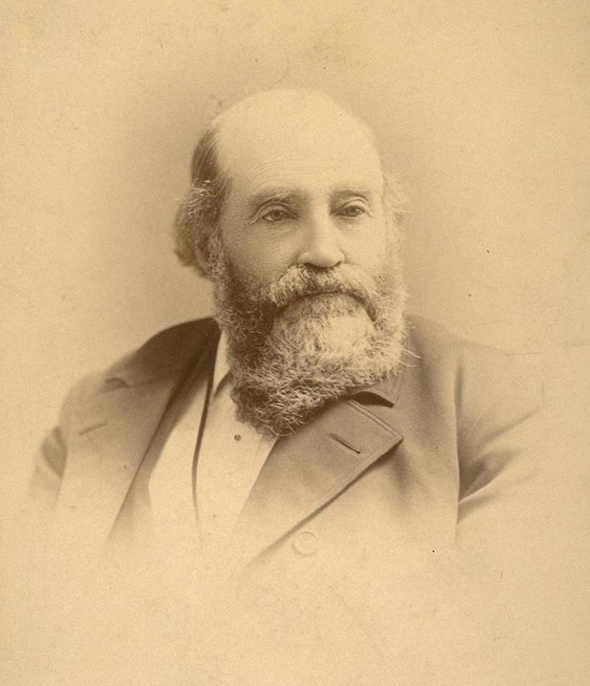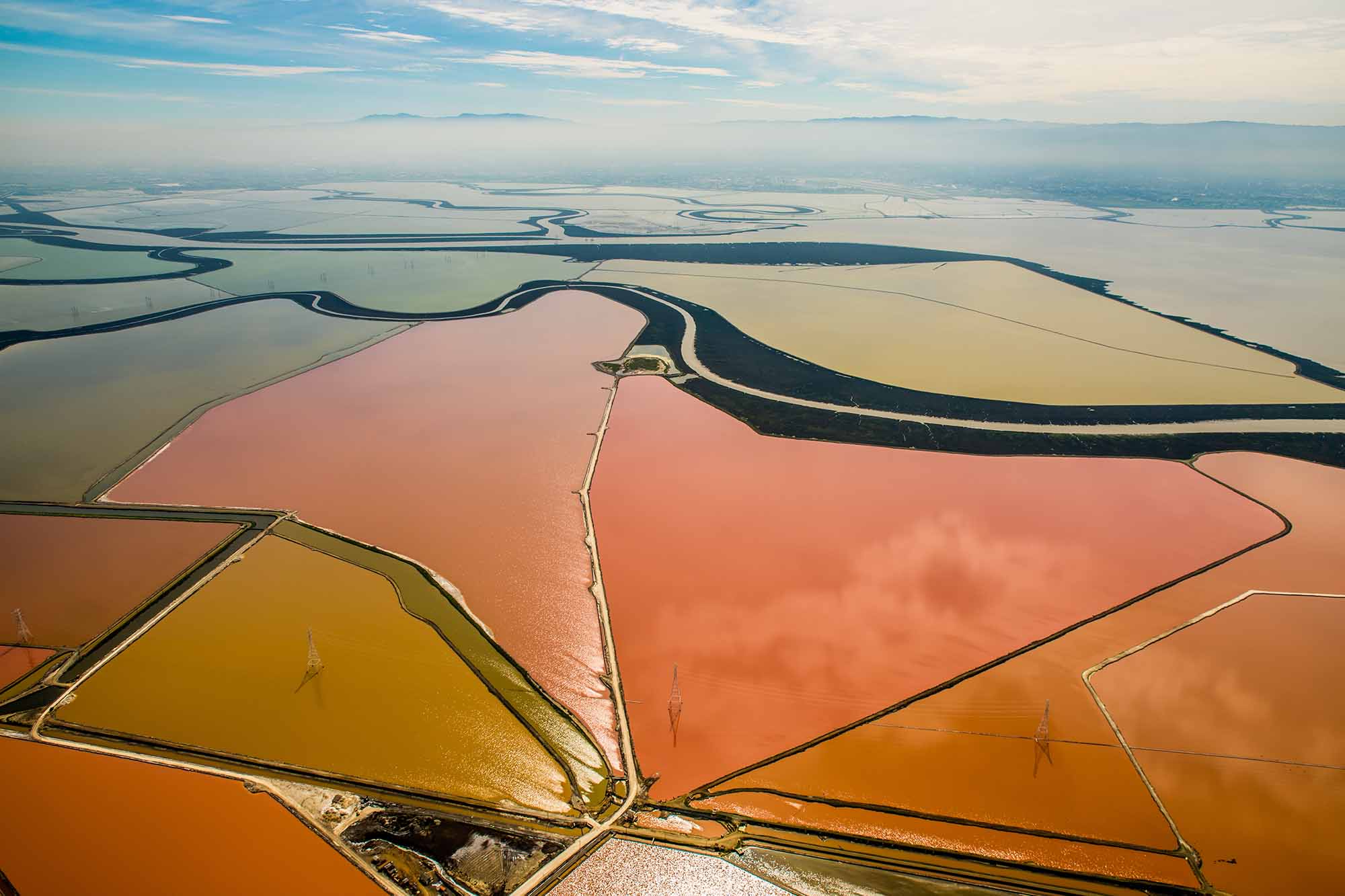Episode Transcript
Olivia Allen-Price: Let’s take a moment to consider Monterey Jack cheese.
Decent cheese, probably not my first choice for a cheese plate, I’m more of a gouda girl but I’m not going to turn it down if someone offers. It works well in a quesadilla, melted on nachos, in a grilled cheese sandwich.
You might guess with a name like Monterey Jack that it hails from the beachside town of Monterey, just south of the Bay Area. But a listener named Kathy wrote to us because she’d heard something else entirely! That Monterey Jack was actually created in Pacifica.
Today on Bay Curious, we’ll investigate this debate to see if we can settle once and for all who made Monterey Jack. This story first aired on the podcast in 2022. I’m Olivia Allen-Price.
[SPONSOR MESSAGE]
Olivia Allen-Price: Reporter Christopher Beale takes us on a journey today – to find the true origins of Monterey Jack.
Christopher Beale: Here in San Francisco when you have a question about cheese, you might stop by a place like the Rainbow Grocery Co-Op and talk to a cheesemonger.
Gordon “Zola” Edgar: Basically it’s an old fashioned word for someone who buys and sells cheese. I’m in the business of cheese.
Christopher Beale: That’s Gordon “Zola” Edgar and he’s been working with and around cheese for almost 3 decades, and took me for a tour of his cheese department at the co-op.
Gordon “Zola” Edgar: This is where our basic cheeses are, so like Jacks, Cheddars, organic Jacks and Cheddars. You know, domestic swiss, grated cheeses and stuff like that.
Christopher Beale: Okay. So in the grand scheme of cheeses, where do you place Monterey Jack? Like, what is Monterey Jack cheese for?
Gordon “Zola” Edgar: Monterey Jack, it kind of lives on this like, parallel life to mild cheddar. They’re both your basic, like, pantry cheeses. Monterey Jack, you could say is basically a cheddar with a little more moisture.
Christopher Beale: The flavor of a Jack cheese is really mild, the texture is soft, it cuts and melts easily. It’s not a sexy cheese but it’s been made in one form or another in our region for hundreds of years, as far back as the late 1700s. Spanish missions, which were located all over what is now California, made a simple white cheese. There is a likelihood that the cheese from those missions, then known as Queso del Pais, evolved into the cheese we know as Monterey Jack. But that may not be the story at all.
Gordon “Zola” Edgar: Some people say that it got its name from the Jack press that was used to make the cheese, others say it was named after David Jacks who, kind of, well, that’s a long story, but who, let’s just say, popularized the cheese.
Kathleen Manning: David Jack, he was quite a scoundrel.
Christopher Beale: That’s Kathleen Manning, she is the former president of the Pacifica Historical Society.
Christopher Beale: He was like an early capitalist, right?
Kathleen Manning: I would say so.
Christopher Beale: David Jack was this Scottish guy who came to California during the gold rush in the mid 1800s. He sold some firearms for a huge profit in his first days in California and went to the mountains searching for gold…which he did not find. So, Jack–who around this time took to calling himself David Jacks– returned to the Bay Area and made his way to Monterey in 1850. This is where his reputation as sort of a jerk begins.
Christopher Beale: At the end of the Mexican-American war Jacks was involved in a scheme that ultimately allowed him to buy the entire town of Monterey, and much of the adjacent land at a steep discount.
Kathleen Manning: a lot of shady land deals
Christopher Beale: And once he owned everything in and around Monterey, he started loaning money to people, and when they couldn’t pay he would foreclose and, well, you can imagine he didn’t make a lot of friends this way.
Kathleen Manning: He was able to take advantage of a lot of people. He has a very bad reputation.
Christopher Beale: The town even tried a few times to, basically, buy itself back from Jacks even sending a case to the U.S. Supreme Court. But Jacks ultimately won.
Christopher Beale: Aside from land, Jacks had another business interest – dairy. There were hundreds of dairies making milk and various types of cheese around Monterey at the time, many were on Jack’s land and one of those dairies was making this mild, soft, white cheese. Jacks would market and sell that cheese with his name on it, and the official Jack cheese was born.
Christopher Beale: The original recipe for the cheese Jacks would claim and sell as his own could have come from any number of places…Jacks certainly didn’t invent it, but where did it come from?
Gordon “Zola” Edgar: It’s really hard to know. There is a claim that it originated in Pacifica.
Christopher Beale: So — I asked Kathleen Manning.
Christopher Beale: Was Monterey Jack cheese actually created in Pacifica?
Kathleen Manning: Yes it was.
Christopher Beale: If you have ever been to Rockaway Beach in Pacifica, there is a huge point that juts out into the Pacific Ocean on the north end of the beach and it is there — on Mori’s point — where, some believe, the recipe for what would became known as Monterey Jack entered the United States.
Kathleen Manning: Stephano Mori brought a recipe from Italy, and they certainly produced it here.
Christopher Beale: There used to be this restaurant up on that hill called Mori’s Place and one of the things they sold was cheese. Kathleen and the folks at the Pacifica Historical Society have an old cookbook called “Eating Around San Francisco.” They say a passage in that book supports their claim …
Christopher Beale: What year is this book from?
Kathleen Manning: 1938
Christopher Beale: Oh, and then right down here, bold at the top of the chapter it says, Ray Mori’s place near Rockaway Beach. Would you mind reading that to me? If you can.
Kathleen Manning: I was interested to discover that it was Stephano Mori, who first made what we today called Monterey cheese. Having been born and brought up in Italy, Stephano and his wife learned there how to make cheese. They made it on their Mori point property.
Christopher Beale: So the Mori had this family friend named Baldocci. He worked with them at Mori’s point and he learned how to make their cheese recipe.
Kathleen Manning: The cheese was very good.
Christopher Beale: Baldocchi, and the Mori’s had a falling out and this is where the link to Monterey happens. Kathleen reads on…
Kathleen Manning: He learned how to make the cheese and went to Monterey and manufactured it on a commercial scale. As he was on the Jack ranch. The cheese is now known as Jack or Monterey cheese.
Christopher Beale: There, in black and white is Pacifica’s claim to Jack Cheese.
Now, not everyone is sold on this theory that the recipe came from Pacifica. It’s been argued that a local woman who sold homemade Queso del Pais door-to-door could be who Jacks took the recipe from.
And some think the cheese isn’t named after David Jacks at all! Another cheesemaker in the area used a Jack press to make his cheese – that’s a device used to squeeze moisture out. And it’s believed he sold his cheese under the name “Jack Cheese” for that reason.
Christopher Beale: Ultimately it’s hard to determine the cold hard facts about this soft mild cheese. What we know for sure is that David Jacks would go on to distribute and market the cheese as Jack’s cheese, and eventually people began asking for “Monterey” Jack’s Cheese across the state, and eventually the country and the world. And that cheese would help make Jacks a wealthy man.
Pacifica, however, isn’t taking the alleged theft lying down.
Kathleen Manning: The historical society felt it was our duty to reclaim the, uh, wonderful heritage that we have. And so. We began producing the cheese here and selling it locally, just on a small basis. and people loved it. That’s a wonderful, wonderful cheese this is made with, by a fine cheese maker.
Christopher Beale: Kathleen says that the Pacifica Historical Society has sold about 3 tons of their “Pacifica Jack Cheese” and gave me some to take home. I’ll put a link in the web post of this story for where you can buy your own, but Kathleen says:
Kathleen Manning: The best way is to come to the museum when it’s open and we’re open Tuesdays, Thursdays, and Saturdays, one to four, and the cheese is always available.
Christopher Beale: We may never know with certainty where Monterey Jack Cheese actually originated. It’s hard to get a thief like David Jacks to give up that sort of information, but it did ultimately become a staple food our region is famous for. But according to the folks in Pacifica, there’s always been a chapter missing in the story of this California original Jack Cheese.
Kathleen Manning: If you don’t know Pacifica, you don’t know Jack.
Olivia Allen-Price: That story was by Christopher Beale, who joins me in the studio now. Hey Chris!
Christopher Beale: Hello! I also brought the Pacifica Jack Cheese with me that I was given. It’s a hefty brick of cheese.
Olivia Allen-Price: I’m so glad you did because it felt remiss to do this story and not actually eat any cheese so let’s cut into it. Nice packaging. Lets give this baby a cut. Oh that cuts just like butter!
Christopher Beale: Lets try it.
Olivia Allen-Price: Take a bite, friend.
Christopher Beale: I’m not gonna lie, that’s actually really good.
Olivia Allen-Price: Oh yeah, it’s actually way sharper than I remember Monterey Jack Cheese being. I mean, it tastes like a cheddar to me.
Christopher Beale: It’s not a basic pantry cheese to me, that’s delicious!
Olivia Allen-Price: Woah bold words! I can’t remember the last time I would’ve had Monterey Jack Cheese by itself or even on a cracker. I mean, I generally would have it, you know, in a sandwich, or melted on something. It’s not like a cheese I reach for but, uh, I’m enjoying this.
Now, we kinda had to end this story on a bit of an uncertain note. Do you as a reporter feel at all disappointed that there wasn’t a very sharp answer to this one?
Christopher Beale: I’m not disappointed because I think that regardless of which path this cheese took into the United States and then across California, it is now an absolutely, unequivocally local product. It’s a thing Northern Californians can be proud of.
Olivia Allen-Price: And I should say, especially when it comes to food stories–we’ve done stories for Bay Curious about sourdough, cioppino, the martini, Irish coffee, rocky road ice cream–and in almost all of these stories there’s some bit of lore that we just can’t quite nail down. So a lot of these stories end kind of on a shrug, we did our best!
Christopher Beale: And food is this kind of cultural exchange where one culture may provide one thing, be it an ingredient, and another may provide a manufacturing process. And before you know it those things have happened here, away from the home of that recipe and a whole new recipe has come to light under a whole different name it becomes something like Monterey Jack Cheese, a California original.
Olivia Allen-Price: Yeah, I think from now on when I have Monterey Jack it’s going to bring up this story in my head and what a lovely thing, that food is a story.
I did bring some pretzel crisps that I keep at my desk.
[pretzel crunch]
Christopher Beale: Question for you, do you have wine at your desk?
[Olivia laughs]
Olivia Allen-Price: Christopher Beale, thank you so much for your reporting on this topic.
Christopher Beale: Thanks for the pretzels.
Olivia Allen-Price: And also thanks to Jean Bartlett for all of her help with this story.
This episode of Bay Curious was made by Katrina Schwartz, Brendan Willard, Sebastian-Mino Bucheli and me, Olivia Allen-Price. Our team today includes Amanda Font, Christopher Beale and Ana De Almeida Amaral. Additional support from Katie Sprenger, Jen Chien, Maha Sanad, Holly Kernan and the whole KQED Family. We’re a production of member-supported KQED in San Francisco.
Ok, I’m going to resist making a cheesy joke here … and just say farewell.
Olivia Allen-Price: It’s a little melty even, where have you been keeping this?
Christopher Beale: In my desk drawer.
Olivia Allen-Price: Mmm, tasty. Desk cheese.



